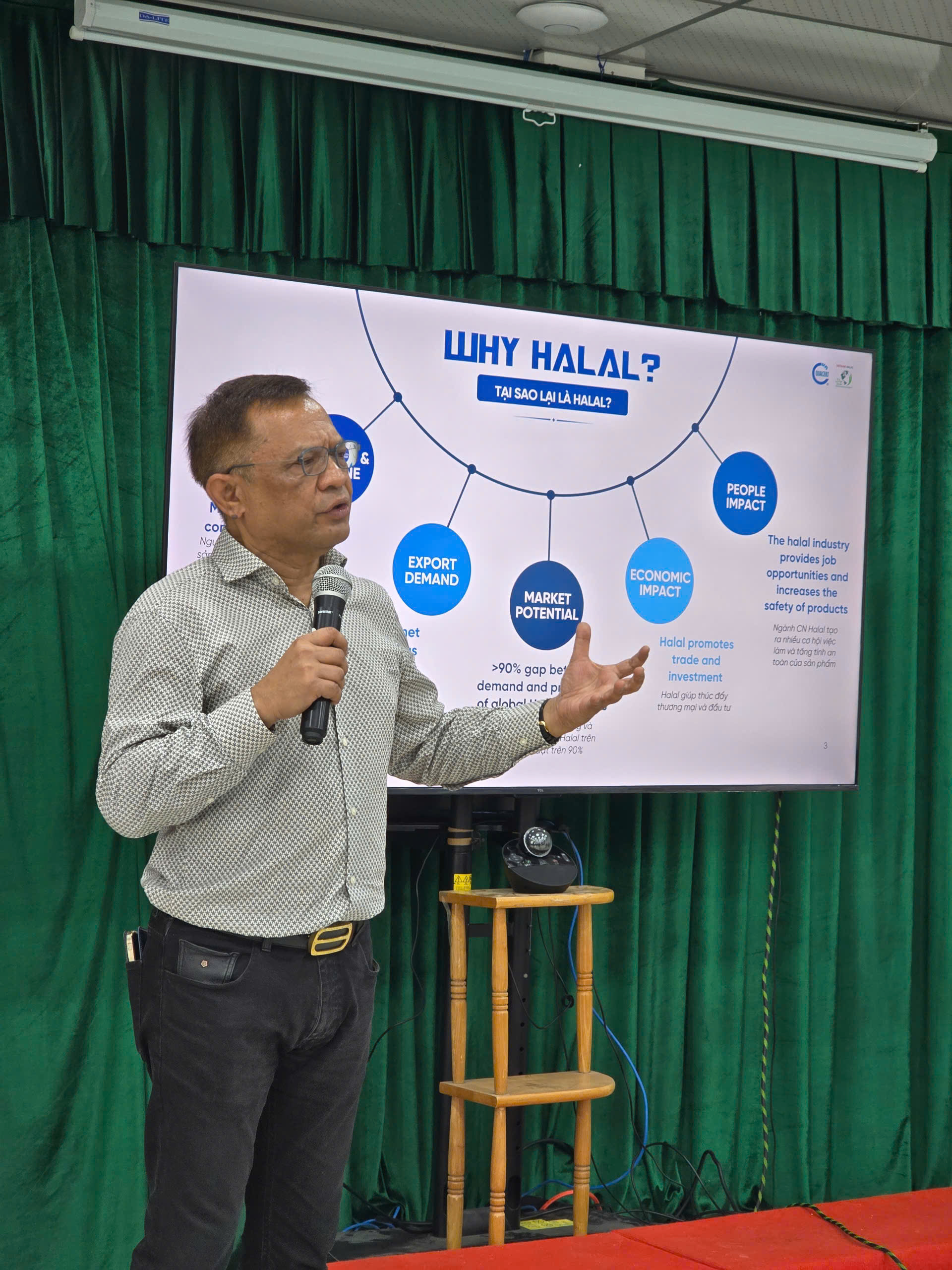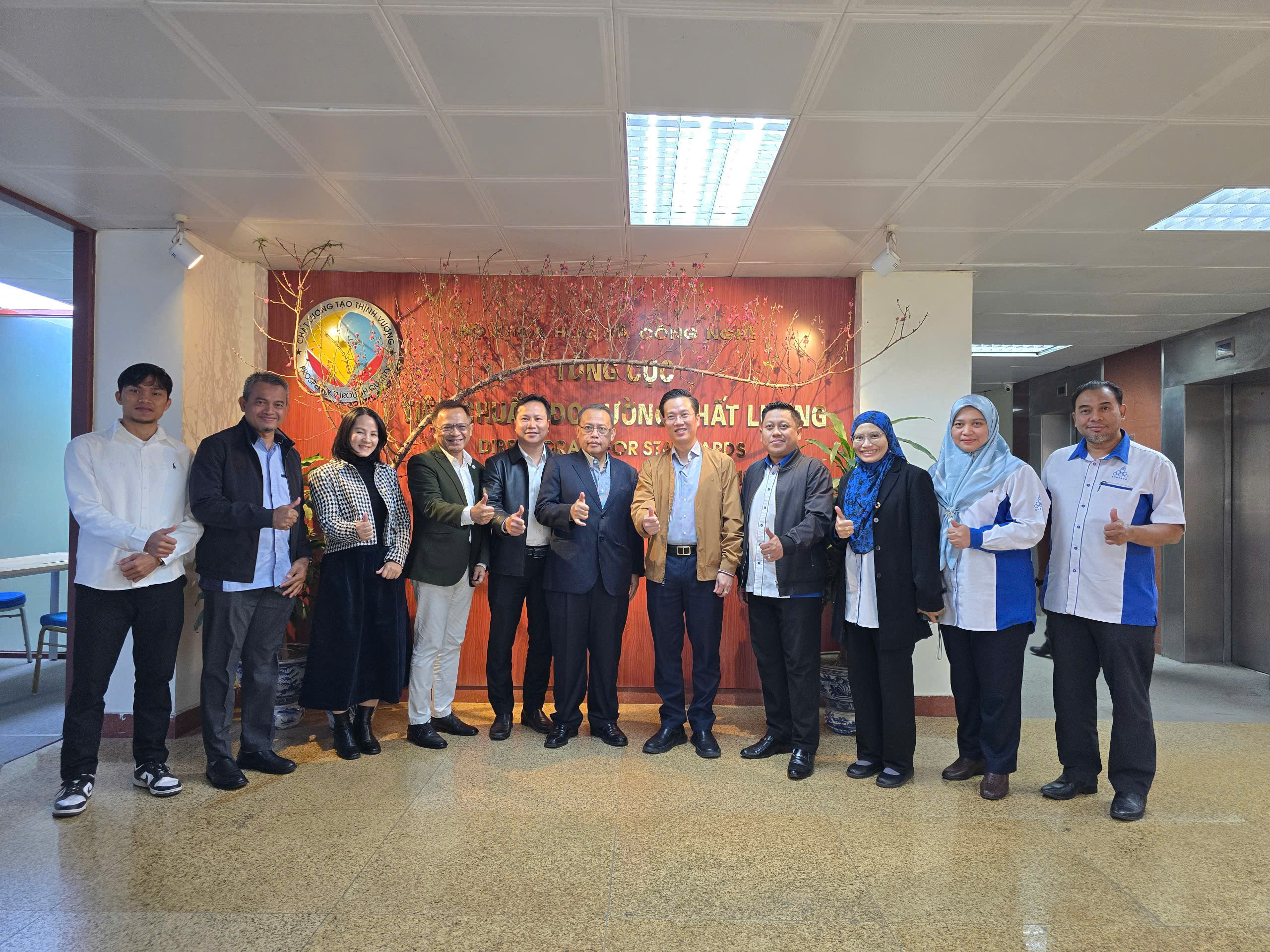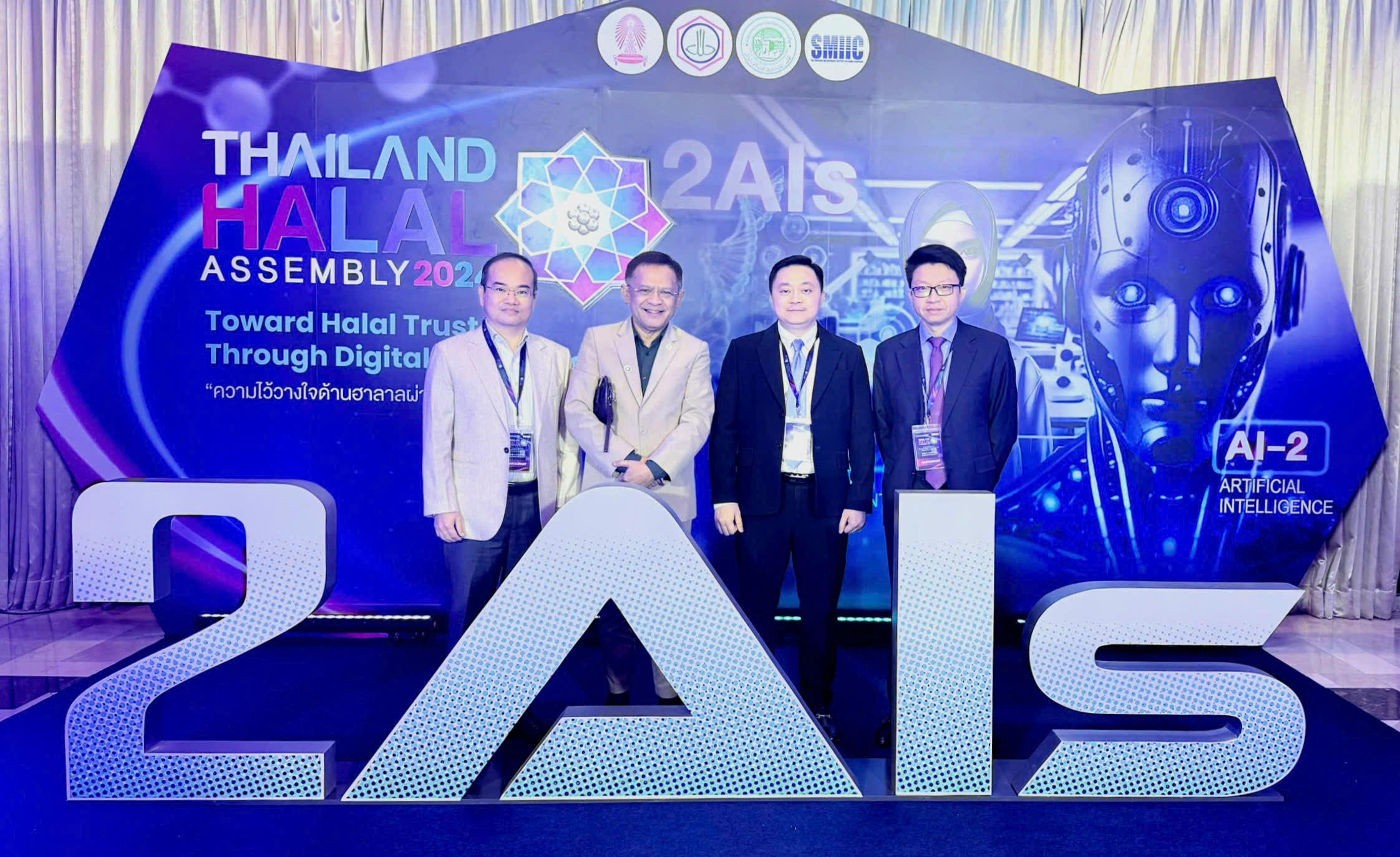March 28, 2025: Vietnam Halal Certification Authority (HALCERT) participated and presented at the seminar “Halal – From Standards to Branding: New Opportunities for Vietnamese Export Enterprises,” organized by the Agency for Foreign Trade – Ministry of Industry and Trade in Ho Chi Minh City.
Opportunities and Challenges from the Halal Market
The global Halal food market is estimated to reach USD 2.7 trillion per year and is forecasted to grow to USD 5.912 trillion by 2033, with a growth rate of 8.92% from 2025 to 2033. This presents a significant opportunity for Vietnamese enterprises but also poses challenges in terms of standards and competition.

Overview of the Seminar
Vietnam has several advantages for entering the Halal market, such as its geographic proximity to the Middle East and Africa, which helps reduce logistics costs and transportation time, facilitating export. In 2024, Vietnam’s Halal goods exports to these regions reached nearly USD 700 million, with countries like the UAE, Saudi Arabia, and Egypt leading the way.
Additionally, the system of Free Trade Agreements (FTAs) and the recent CEPA Agreement with the UAE provide tariff advantages, expanding opportunities for Vietnamese products in major markets like the Gulf and Southeast Asia. Products like rice, coffee, cashews, seafood, milk, and fruits have great potential if they meet Halal standards. For example, Vinamilk, with its Halal-certified dairy products, recorded over 85% of its revenue from Middle Eastern markets.
Speaking at the seminar, Mr. Ramlan Bin Osman, Director of the Vietnam Halal Certification Authority (HALCERT), stated that Halal is not just limited to the Muslim community but is also popular with consumers worldwide due to the quality and safety of the products. He emphasized, “In countries like the U.S., Japan, and South Korea, Halal certification symbolizes clean products that align with the healthy lifestyle trend.”

Mr. Ramlan Bin Osman, Director of HALCERT, guiding enterprises on how to register for Halal certification at the seminar.
Challenges for Vietnamese Enterprises
However, Vietnamese enterprises are still facing numerous challenges. Most businesses in the food industry are small and medium-sized, lacking awareness and the capacity to invest systematically in Halal standards. Ms. Lý Kim Chi, President of the Ho Chi Minh City Food and Foodstuff Association (FFA), a speaker at the seminar, mentioned, “Many enterprises do not fully understand the trade regulations of Islamic countries and easily confuse the concept of Halal.” Halal is not just about eliminating pork, but requires a closed production process to avoid cross-contamination – a requirement that demands capital investment and specialized knowledge that many businesses lack.

Ms. Lý Kim Chi, President of the Food and Foodstuff Association of Ho Chi Minh City (FFA), speaking at the seminar.
Mr. Ramlan Bin Osman also emphasized: “Halal requires absolute cleanliness – according to the concept of ‘Halal Thoyibb’ in Islam. Even if a product does not contain alcohol or pork, if the production facility does not maintain hygiene, the product will not meet Halal certification.” He also shared observations from visits to production facilities in Vietnam, where cleanliness was not ensured, despite products holding other system certifications.
Solutions and New Directions
To fully tap into the potential of the Halal market, there must be close cooperation between the government, enterprises, and certification organizations. The “Strengthening International Cooperation to Develop Vietnam’s Halal Industry by 2030” plan is a strategic step to lay a solid foundation for businesses to participate in the global Halal market.
By cooperating with international certification organizations like JAKIM and GAC, and with its assurance of quality as the only state-managed certification body, HALCERT is currently one of the most trusted units in Vietnam for businesses seeking Halal certification, opening doors to new markets.
Mr. Ramlan Bin Osman confirmed: “Understanding the certification process and choosing the right certifying body is crucial for international recognition of the product.” HALCERT provides certification according to the TCVN 12944 standard and offers training to help businesses not only meet the standards but also truly understand Halal requirements.
Conclusion
These efforts provide the foundation for Vietnam to harness the great potential of the Halal market, as affirmed by Mrs. Nguyễn Cẩm Trang, Deputy Director of the Export-Import Department: “Vietnam can tap into the Halal market worth USD 5.912 trillion by 2033.” She also mentioned that the Department is implementing the 2030 plan, which involves the development of Halal industrial parks and enhancing certification recognition with international organizations. The collaboration between ministries such as the Ministry of Industry and Trade and the Ministry of Science and Technology is key to opening Vietnam’s doors and “stretching its reach” into this economically promising Halal market.

Delegates at the seminar, including Mrs. Nguyễn Cẩm Trang, Deputy Director of the Export-Import Department – Ministry of Industry and Trade (far left).
Hồng Quân – Vietnam Halal Certification Authority (HALCERT)
Vietnam Certification Centre (QUACERT)






